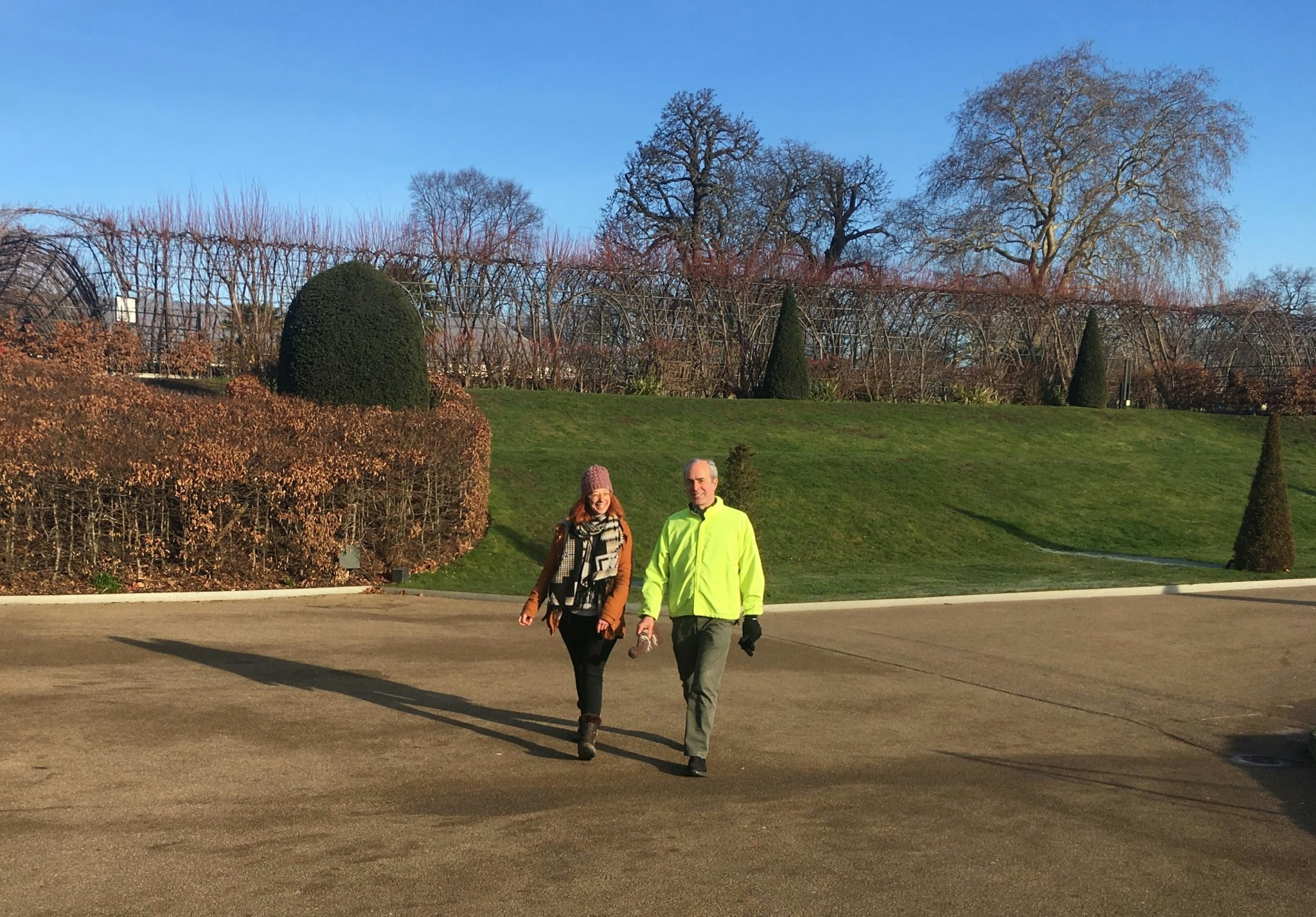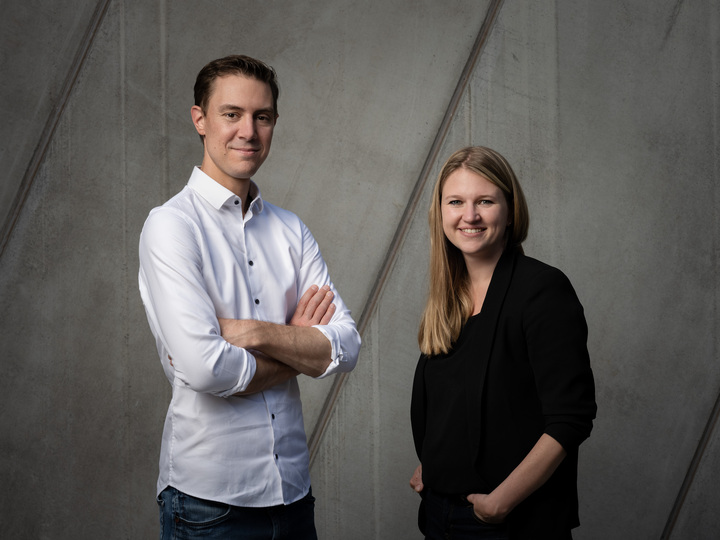Pitching to venture capitalists naturally involves a good amount of preparation, but rarely are the instructions quite so idiosyncratic as London-based Tim Jackson’s: strong shoes, informal clothes, no heavy bags, and a meeting location described using latitude and longitude coordinates. His final instructions to me before meeting were: “Prepare for rain. Rejoice if none. Meet in front of Queen Victoria.”
Jackson is the head of Walking Ventures, an early-stage venture capital firm that is known for its unusual pitching process. Instead of listening to a startup idea in a conventional boardroom, Jackson takes entrepreneurs on an hour long 8am or 9am walk around a park in London. His aim is to cut through the performance an entrepreneur would have rehearsed for a more formal meeting, and instead get to know the person behind the pitch.
He admits it’s a cliche, but Jackson still uses the analogy which compares a VC investment to a marriage commitment, joking that “the average investment lasts longer than the average marriage”. It’s not a coincidence that at his choice of location — the peaceful Kensington Palace gardens in central London — you’re more likely to spot an elderly dog-walking couple or even a first date than stumble upon a business meeting. The idea, he says, is to help people open up to him and encourage their honest personal reflections and sharing.
On a walk, people just seem to feel comfortable getting in to personal topics and answering honestly. We’re on the same level. It’s less confrontational.
“Like many VCs, I’ve realised over the years that understanding people, their motivations and their aspirations is essential to evaluating a potential investment,” he says. “And yet most introductions are in a formal conference room with an entrepreneur presenting a formulaic pitch they have repeated numerous times. For an investor, they start to sound the same and it’s hard to differentiate.”
He adds: “On a walk, people just seem to feel comfortable getting in to personal topics and answering honestly. We’re on the same level. It’s less confrontational.”
This all sounds very reasonable, but as I embark on my own 9am stroll with Jackson on the first below-freezing day of this winter, I do wonder if the same result couldn’t be achieved with a casual chat over a nice cup of coffee in a cosy cafe nearby. I put the question to him, acknowledging the difficulty I’m already having trying to maintain eye contact, keep up conversation, and avoid slipping on patches or ice or accidentally walking into a stray tourist.
“Paradoxically, I think having something else to do— like trying not to walk into people— actually helps people focus on the conversation,” he responds, as we briefly stop to admire the plucky swimmers breaking the ice in the park’s pond. “Maybe it’s the same phenomenon as why people find it easier to work while listening to music.”
There is this stereotype of tech nerds who, even at their most extroverted, will look at someone else’s shoes rather than their own - but my experience is that anyone can be brought out of their shell.
In a former life, Jackson was himself a journalist, writing for the Economist and a weekly column in the Financial Times. Later, he founded the online auction service QXL.com, which was sold in 2007 for $1.9bn. Then, he worked as a managing director of Carlyle Internet Partners Europe, a $700m fund focused on European technology, before founding his own seed fund, Walking Ventures.
He says that journalism, academia and venture capital are in many way quite similar. “The goal is to really understand something. The difference is in how your decisions or opinions are validated. In journalism you’re proven right if, for example, some ageing yellow documents come to light supporting your story. In investment, you’re proven right by the success of your portfolio businesses.”
For him, the best way to understand a potential investment is to understand the people. His approach is to gently probe entrepreneurs on why they make certain decisions, what they have learnt from past experiences, and where they’d ultimately like to end up. Though he hasn’t undergone any formal psychology training, he says he has read widely on relevant topics, such as cognitive biases.
Jackson is proud of the care and attention he pays to each person he talks to — unlike many in the industry, he says. “It’s a dirty secret that many VCs don’t actually read the slides before inviting someone to pitch in person,” he says. “I really read a pitch thoroughly before I decide it’s worth everyone’s time to go for a walk. If I’m taking time to really get to know someone, I already think there’s a good chance it’s the right investment for us. It’s better for all of us not to waste time.”
It’s a dirty secret that many VCs don’t actually read the slides before inviting someone to pitch in person.
His main concern about the current pitching environment is that entrepreneurs are often left feeling disheartened or exploited. “Many entrepreneurs complain about being mistreated,” he says. “Investors decide within the first 15 minutes that they are not interested, but then everyone has to stick around for the whole hour. Somehow VCs think they can just start doing other work, answering emails or checking facebook, without the presenter noticing.”
Occasionally, people are put off by the notion of going on a walk, preferring a more traditional pitching environment, admits Jackson. But generally, he says, even the most reserved people end up relaxing and enjoying the walk. “There is this stereotype of tech nerds who, even at their most extroverted, will look at someone else’s shoes rather than their own — but my experience is that anyone can be brought out of their shell.”

The walks have not always gone smoothly. At the beginning, he hadn’t yet realised how specific his instructions needed to be. “Someone once turned up in a three-piece suit and an open laptop,” he tells me. “And I felt horrible when a woman came wearing extremely high heels.”
But as long as everyone is adequately prepared, the experience offers an incredible insight into a person, he says. Two different walks particularly stand out. The first was with an “extremely smart and talented entrepreneur” who had built a service supporting people with disabilities when they went traveling. Jackson says he was willing to waive the “walking pitch” requirement when he found out the entrepreneur himself was in a wheelchair, but the man was enthusiastic and enlisted an assistant to help get him to the right place at the right time. Jackson, who ended up “huffing and puffing to keep up” as he zipped around the park, says he recognised the entrepreneur’s passion and drive, and did end up investing.
It’s important to appreciate beautiful things.
Another walk with a founder of a gardening content startup came to a halt at the palace’s Sunken Gardens. The woman explained everything wrong with the garden design, and exclaimed “these manicured gardens are exactly what we need to stop doing”. Again, he says, her expertise, dedication and passion shone through.
Jackson adds that even if the business ultimately isn’t for him, the process is a joy and he always learns something interesting.
At the end of our walk, we have circled back to the statue of Queen Victoria, and he stops to take a photo of frost patterns on a metal railing. I realise that these walking pitches aren’t just about giving entrepreneurs the best chance to present themselves authentically; they are also important for Jackson to maintain his own wellbeing so that he is able to keep doing what he does best.
“It’s important to appreciate beautiful things,” he says.



